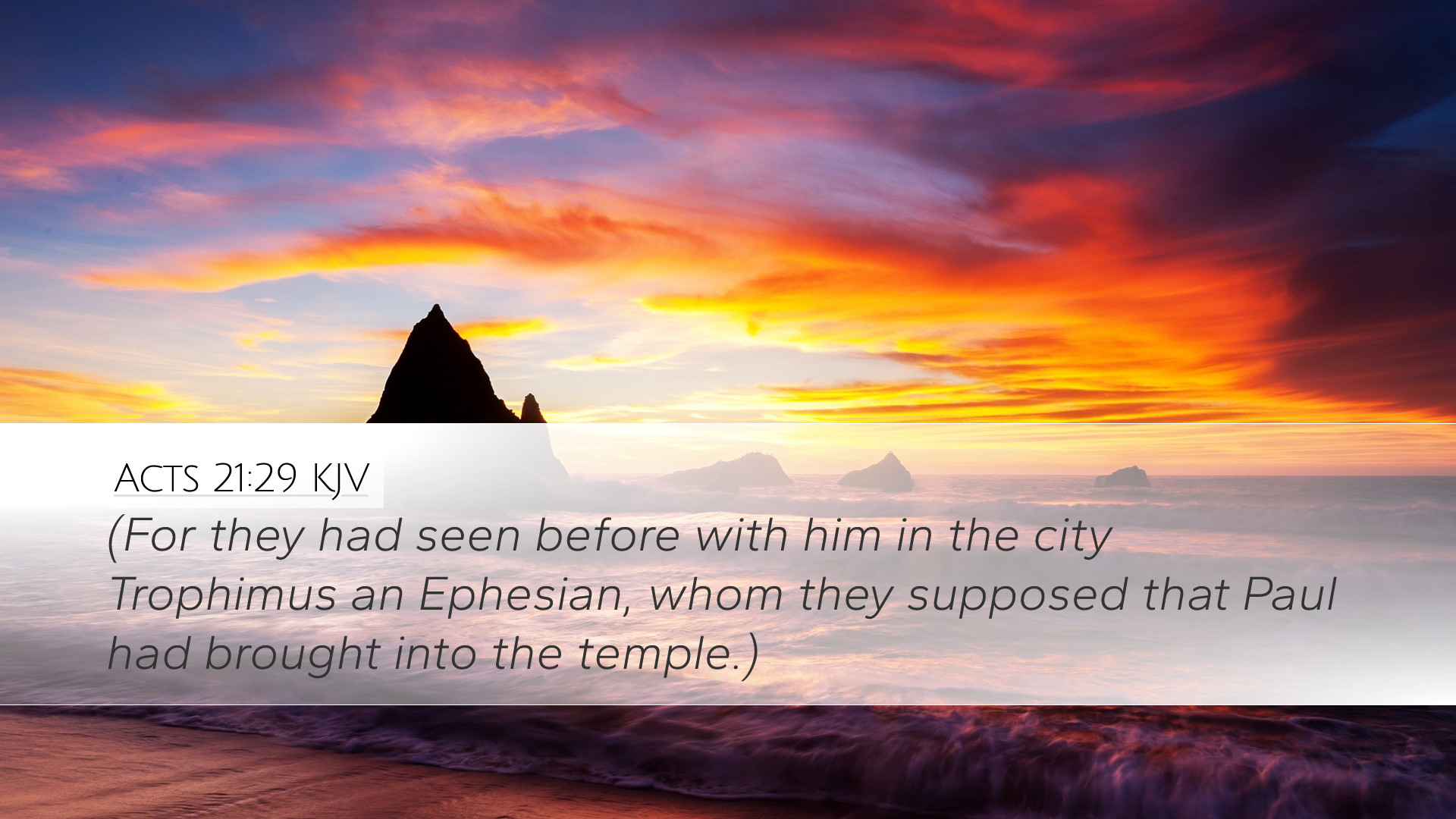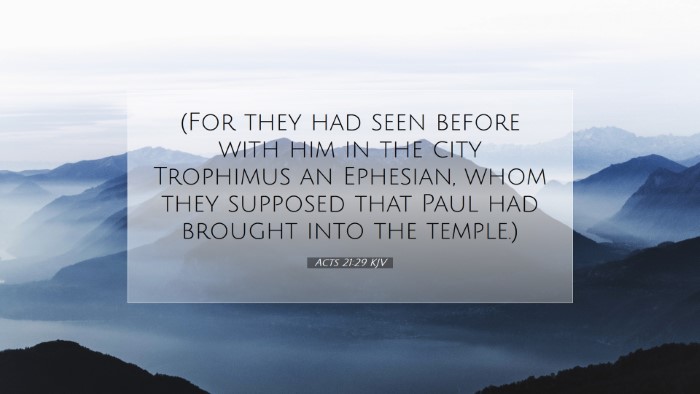Commentary on Acts 21:29
Acts 21:29 states: "For they had seen before with him in the city Trophimus an Ephesian, whom they supposed that Paul had brought into the temple." This verse is pivotal in understanding the events leading to the unrest surrounding the Apostle Paul. Below is a summary of insights derived from public domain commentaries including Matthew Henry, Albert Barnes, and Adam Clarke.
Contextual Background
The context of Acts 21 reveals Paul's journey to Jerusalem, where he encountered significant opposition. After being warned about the dangers that awaited him, Paul resolved to go to Jerusalem to fulfill his mission. This verse highlights a critical moment that leads to Paul’s arrest, serving as a basis for the accusations brought against him by the Jewish leaders.
Exegesis of Acts 21:29
According to the commentaries:
-
Matthew Henry: Henry elaborates on the significance of Trophimus as a representation of the broader gentile audience that Paul was ministering to. Henry points out that bringing a Gentile into the temple was seen as a severe offense, leading to the commotion among the Jews. This servitude towards the law and customs highlighted the cultural and religious tensions of the time.
-
Albert Barnes: Barnes emphasizes the mistaken assumption made by the Jews that Paul had violated the temple laws. He discusses how the presence of Trophimus was used as an excuse to incite a mob against Paul. Barnes highlights the piety surrounding the temple and how any perceived transgression would invoke swift and severe responses from the Jewish community.
-
Adam Clarke: Clarke provides a detailed examination of the identity of Trophimus and the significance of his being an Ephesian. He highlights the implications this had for both Paul and the Jewish people in Jerusalem. Clarke notes that accusations against Paul were rooted in misunderstanding and prejudice against the burgeoning Christian movement, which embraced Gentiles without requiring adherence to Jewish law.
Theological Themes
This verse introduces various theological themes that are of interest to pastors and scholars alike:
- The Inclusion of Gentiles: The presence of Trophimus symbolizes the early Church's mission to include Gentiles, challenging the exclusivity of Jewish practices. This invites a discussion on the nature of the Church as a universal body transcending ethnic boundaries.
- Misunderstanding and Prejudice: The immediate reaction of the crowd demonstrates how prejudice can cloud judgment. This theme resonates with the ongoing discourse in contemporary settings where misunderstandings can lead to conflict.
- Faithfulness in Trials: Paul’s steadfastness in the face of adversity reflects the call for believers to remain faithful amidst persecution, reinforcing the message of endurance found throughout Scripture.
Application for Modern Believers
Understanding Acts 21:29 has practical implications for modern believers:
- Awareness of Cultural Context: Just as Paul faced cultural scrutiny, Christians today must navigate the cultural contexts of their communities, showing sensitivity and understanding in their outreach efforts.
- Encouragement in Perseverance: Paul's determination to fulfill his mission offers encouragement to believers facing trials, exemplifying how faith can provide strength in difficult circumstances.
- Call to Unity: The unity that Christ calls His followers to is challenged by divisions. This passage invites believers to strive for unity despite differences, reflecting the inclusiveness of the Gospel.
Conclusion
Acts 21:29 serves as a critical reminder of the early Church's struggles and triumphs as it sought to navigate complex cultural and religious landscapes. The insights from Henry, Barnes, and Clarke provide a robust framework for understanding the multi-dimensionality of this verse, offering valuable lessons for faithfulness, inclusivity, and resilience in the face of adversity.


